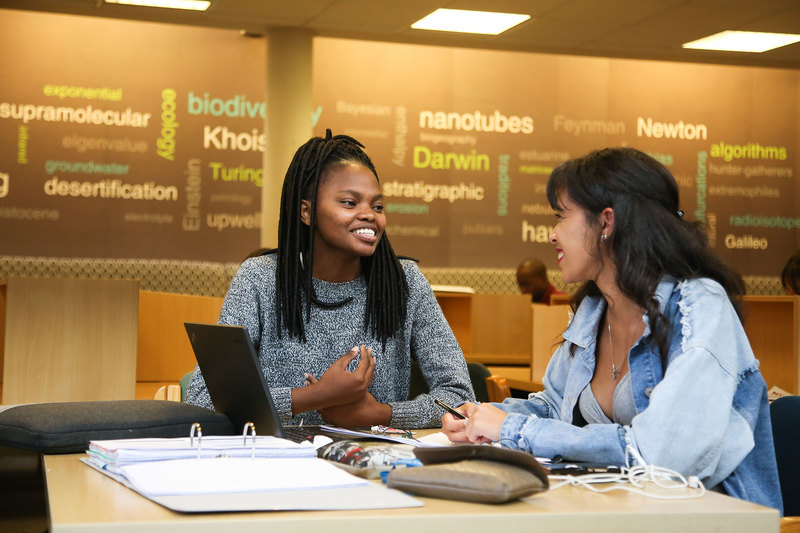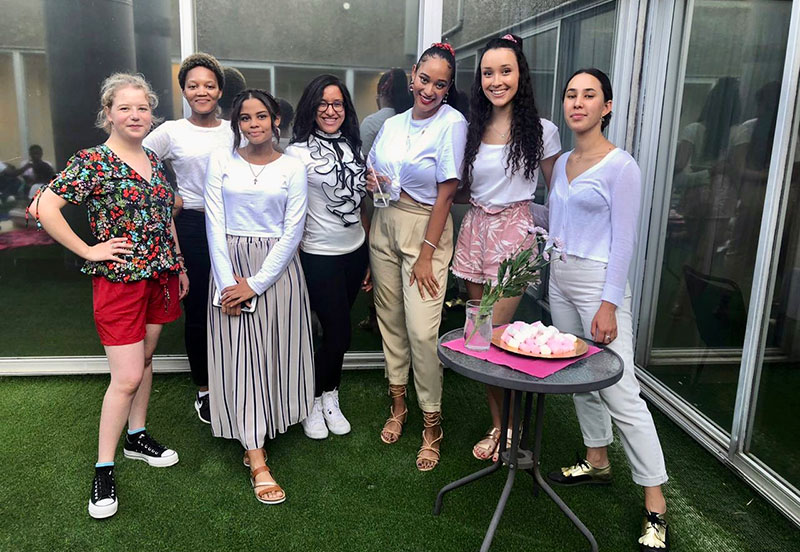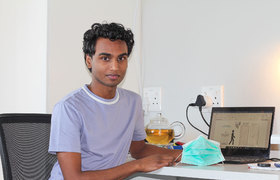UCT student organisations show resilience during lockdown
26 May 2020 | Story Natalie Kammies. Read time 7 min.
A group of University of Cape Town (UCT) students are showing grit and resilience by changing the way they work to adapt to the challenges of the national lockdown.
The students, who are part of the UCT Plus programme, have adapted the way they work by, in some cases, migrating online to ensure that even though it’s not business as usual, they still find innovative ways to achieve their goals.
UCT Plus, which is run by UCT Careers Service, is a leadership award programme that formally recognises students’ extracurricular work on their transcripts. The programme has various pathways, and students who are in elected positions, peer mentors and volunteers, are eligible for the award. Student organisations or programmes that are eligible to take part in UCT Plus will then have their coordinator apply to take part in the leadership award programme.
While UCT Plus students have found that staying motivated can be challenging, constant communication, keeping in contact and checking in with on one another have helped them face challenges.
Meet the students
Erin Buchanan is a first-year master’s student in molecular and cell biology at UCT and the chairperson of the student society We Are Animals. The volunteers at the society fall under the Community Service Leadership pathway of UCT Plus. We Are Animals has been supporting various animal organisations such as Oscar’s Arc, the SPCA, Sidewalk Specials and Domestic Animal Research Group (DARG). The student society hosted a term-one bake sale before lockdown and donated the proceeds to DARG. They now support their beneficiaries virtually due to the lockdown.
“At the moment this consists of advertising any virtual events they are hosting on our social media [platforms], but hopefully we will have some virtual events of our own soon,” said Buchanan.

Imaan Sayed is in her penultimate year of her LLB at UCT and Vice-President Internal of the UCT Law Students’ Council. Her portfolio focuses on the Law Faculty Mentorship Programme, which supports first-year law students by connecting them to a mentor to ease their transition into the faculty.
“Due to the lockdown, physical meetings are no longer possible. Therefore meet-ups now take place online. Mentors and mentees are able to choose the form of communication that works best for them. Many mentors choose to video call their mentees during this time. Others have been innovative in creating podcasts of information for their mentees,” Sayed said.
“Another aspect moving forward that I have introduced is journaling. This is a way of tracking progress in the programme, as well as a way to earn hours. Mentors are able to express any concerns, as well as track successful aspects of the programme. Additionally, it serves as an outlet or means of support during this difficult time.”
Sayed said students are encouraged to use LinkedIn Learning, an online educational platform, where she has created a collection of helpful courses for law students during lockdown.
Faculty mentors are eligible for a UCT Plus leadership award for role-modelling.
Others have been innovative in creating podcasts of information for their mentees.”
Stella Hertantyo is a third-year BA Multimedia Journalism student. She is also the editor-in-chief, correspondent and chairperson of the student-run online publication Her Campus UCT. The international publication is run and written by women and aims to empower women at university.

Hertantyo said that because the publication is online, they have continued to conduct many day-to-day activities virtually.
“Given this, we took the decision to continue to release articles and social media content as much as we are able to. We truly believe that Her Campus UCT is a safe space that can be used, during anxious and uncertain times like these, to remind people of the good and optimistic aspects of life and to provide a brief reprieve from the panic and anxious feelings.”
Team and sub-committee members keep in touch weekly through WhatsApp and they are rethinking the way they run events. They recently completed a three-week online lockdown art club on social media and Vula where contributors could express their creativity in any medium of their choice. Submissions will be placed in a digital zine and shared with the UCT community.
Hertantyo and the rest of the executive committee fall under the UCT Plus elected position leadership pathway.
Navigating remote working and learning
What advice would students give to others facing similar challenges during lockdown?
“When it comes to student societies, my advice would be to keep communicating openly and honestly with their members about the ways in which they are adapting to these trying times,” said Hertantyo. She said societies should not feel pressured to operate as though it is business as usual. “Be empathetic and maybe see if there are a few small ways to continue engaging with your members and possibly move some of your ideas online or come up with new virtual ideas.”
“You have to do what works for you. You cannot look at others and apply their method to your way of life.”
Buchanan said her biggest challenge was to stay motivated and productive. “At times it can feel as if you are the only one struggling with online learning and working but you’re not. I feel that the best way to overcome this is to remain in contact with others in your department.”
Sayed noted that it was important to remember that no one has all the answers during this time.
“You have to do what works for you. You cannot look at others and apply their method to your way of life. We are all uniquely different. It is important to reach out during these times. If you are facing challenges, reach out to peers, friends, teachers,” she said.
“The beautiful thing about our current situation is people are so willing to help. The same applies to students who feel okay during this time. Reach out to peers who might not feel the same way. Every bit of help during this time makes a difference.”
Student organisations who are interested in the leadership awards programme can email UCT Plus.
 This work is licensed under a Creative Commons Attribution-NoDerivatives 4.0 International License.
This work is licensed under a Creative Commons Attribution-NoDerivatives 4.0 International License.
Please view the republishing articles page for more information.










